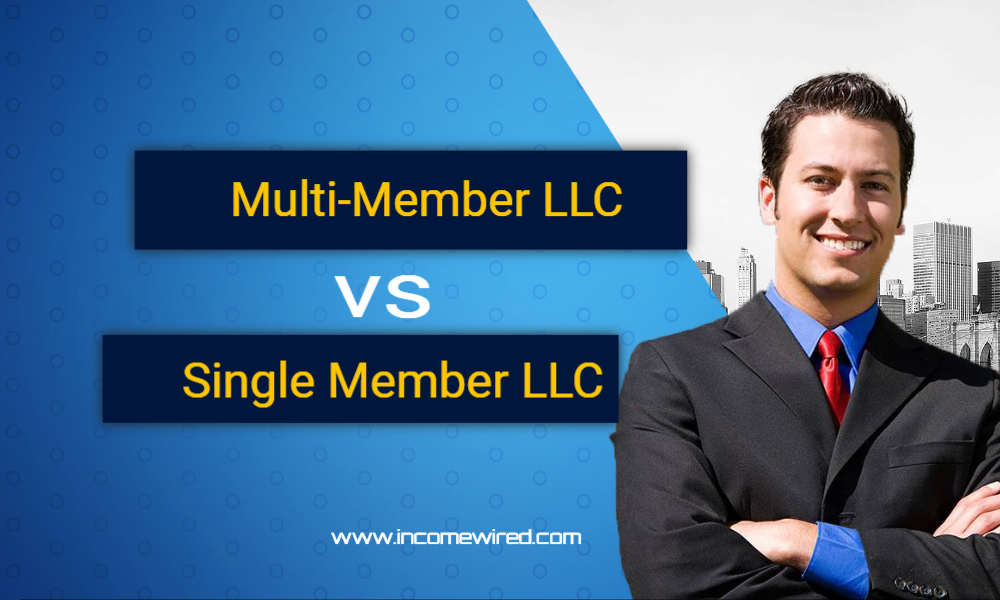we help service-based business owners, freelancers, and aspiring businesses with our content & services & When readers purchase services discussed on our site, we often earn affiliate commissions that support our work. Find out more about Income Wired
S Corporation (S Corp) is a business entity created through an IRS tax election. S Corps are considered by the IRS to be pass-through entities, meaning that the corporation’s income is passed through to the shareholders and taxed at the individual level. S Corps are subject to many of the same rules and regulations as other types of businesses, but there are some key differences that business owners should be aware of.
S Corps have a number of advantages, including the following:
- S Corps offer limited liability protection to its shareholders. This means that the shareholders’ personal assets are protected in the event that the corporation is sued or incurs debts.
- S Corps can help business owners save on taxes. Because S Corps are pass-through entities, the corporation’s income is not subject to corporate taxes. Instead, the shareholders are taxed on their individual share of the corporation’s income.
- S Corps can help business owners raise capital. Because S Corps offer limited liability protection, it may be more attractive to potential investors than other business entities.
There are some disadvantages to S Corps that business owners should be aware of as well:
- S Corps are subject to more stringent recordkeeping requirements than other business entities. S Corps must keep track of their shareholders’ stock ownership and maintain accurate financial records.
- S Corps may have difficulty raising capital. Because S Corps offer limited liability protection, they may not be able to issue shares to the general public.
- S Corps may be subject to higher taxes than other business entities. S Corps are taxed at the corporate level, as well as the individual level. This can result in a “double tax” on the corporation’s income.
Business owners should consult with an accountant or attorney to determine whether an S Corporation is right for their business. S Corps have unique advantages and disadvantages that should be considered carefully before making the decision to form one.
S Corp Vs LLC
Should you form a S corp or an LLC? It depends on your business goals and needs. S corps offer some benefits that LLCs don’t, such as corporate tax treatment and the ability to raise capital through the sale of stock. LLCs, on the other hand, are easier to form and offer flexibility in how you structure your business.
The main difference between S corps and LLCs is that S corps are taxed as pass-through entities, while LLCs can choose how they want to be taxed. S corps must also comply with stricter recordkeeping requirements than LLCs.
If you’re not sure which business entity is right for you, it’s best to consult with an accountant or attorney who can help you weigh the pros and cons
S Corp Vs C Corp
The main difference between S corps and C corps is that S corps are pass-through entities, while C corps are taxed as separate entities. S corps must also comply with stricter recordkeeping requirements than C corps.
C corporations offer some benefits that S corps don’t, such as the ability to raise capital through the sale of stock and the ability to deduct business expenses. C corporations also have a lower tax rate than S corporations.
S Corp Taxes
S corporations are taxed as pass-through entities, meaning that the corporation’s income is passed through to the shareholders and taxed at the individual level. S corporations are subject to many of the same rules and regulations as other types of businesses, but there are some key differences that business owners should be aware of.
S corporations must file a corporate tax return, Form 1120S, every year. S corporation shareholders must also file a personal tax return, Form 1040, every year. S corporation income is not subject to corporate taxes. Instead, the shareholders are taxed on their individual share of the corporation’s income.
S corporations may be subject to higher taxes than other business entities. S corporations are taxed at the corporate level, as well as the individual level. This can result in a “double tax” on the corporation’s income.
S Corporations Examples in the real world
Starbucks, Amazon, and Google are all S corporations. S corporations have many different benefits that make them attractive to businesses of all sizes. S corporations offer limited liability protection, the ability to raise capital through the sale of stock, and corporate tax treatment. S corporations also have some disadvantages, such as stricter recordkeeping requirements and the potential for higher taxes. Businesses should consult with an accountant or attorney to determine whether an S corporation is right for their business.
S Corporation requirements
To qualify as an S corporation, a business must meet the following requirements:
- The business must be a domestic corporation.
- The business must have only one class of stock.
- The business must have no more than 100 shareholders.
- The shareholders must be individuals, certain trusts, or estates. S corporations may not have partnerships, corporations, or non-resident aliens as shareholders.
How to Form an S Corp
The first step in forming an S corporation is to choose a business name and register it with the state where the business will be located. The next step is to obtain an Employer Identification Number (EIN) from the IRS. Once the business has been registered and the EIN obtained, the business must file Articles of Incorporation with the state. After the Articles of Incorporation have been filed, the business must adopt bylaws and elect a board of directors. The final step in forming an S corporation is to file Form 2553 with the IRS.
Frequently Asked Questions: S Corporation
Why Choose s Corporation?
S corporations offer many benefits to business owners, including limited liability protection, the ability to raise capital through the sale of stock, and corporate tax treatment. S corporations also have some disadvantages, such as stricter recordkeeping requirements and the potential for higher taxes. Businesses should consult with an accountant or attorney to determine whether an S corporation is right for their business.
What does the S in S Corporation stand for?
The S is named for Subchapter S of the Internal Revenue Code, which governs S corporations.
How many shareholders can an S corporation have?
An S corporation can have up to 100 shareholders.
Can an S corporation own another company?
Yes, an S corporation can own another company. However, there are certain restrictions on the types of companies that an S corporation can own. S corporations cannot own C corporations, foreign corporations, or other business entities that would disqualify the S corporation status.
How do I know if my company is an S Corporation?
To know if your company is an S Corporation, check with your business attorney or accountant. You can also check your company’s Articles of Incorporation to see if it is filed as an S Corporation. The IRS also has a form, Form 2553, which must be filed in order to elect S Corporation status.



